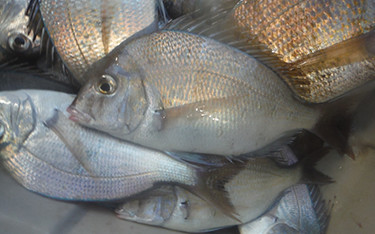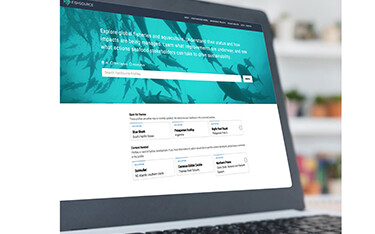Emma Desrochers is a freelance journalist based in Waialua, Hawaii, who writes about fisheries and sustainability. She graduated from Yale University in June 2021 with an undergraduate degree in environmental studies and mechanical engineering. She has contributed to the environmental conservation field through internships located in Ecuador, Thailand, and Hawaii.
Author Archive
Regional fisheries management organizations (RFMOs) play an important, though sometimes opaque, role in fisheries management and governance. These international organizations control fishing quotas and adopt and manage protective measures in geographical areas of the ocean or for specific species.
This article is the last in a four-part series covering the role regional fisheries management organizations in the global seafood trade. The series
… Read MoreRegional fisheries management organizations (RFMOs) play an important, though sometimes opaque, role in fisheries management and governance. These international organizations control fishing quotas and adopt and manage protective measures in geographical areas of the ocean or for specific species.
This article is the third in a four-part series covering the role regional fisheries management organizations in the global seafood trade. The series
… Read MoreRegional fisheries management organizations (RFMOs) play an important, though sometimes opaque, role in fisheries management and governance. These organizations are formed by countries that have fishing interests in those areas or stocks.
This article is the second in a four-part series covering the role regional fisheries management organizations in the global seafood trade. The series is intended to help seafood companies better understand the
… Read MoreRegional fisheries management organizations (RFMOs) play an important, though sometimes opaque, role in fisheries management and governance. In the last few years, with the help of pre-competitive collaborations like the Global Tuna Alliance (GTA), supply chain companies have become more engaged in RFMO management issues to the benefit of the entire industry.
The first in a four-part series covering the role regional fisheries management
… Read MoreA new, accredited third-party certification program, Fairness, Integrity, Safety, and Health (FISH) Standard for Crew, has announced three fishing fleets have become the first organizations to complete the FISH standard audits.
NovaNam (Pty) Ltd., a Namibian-based subsidiary of Nueva Pescanova Group; the At-Sea Processors Association (APA), representing the U.S. flagged Alaskan pollock catcher-processors; and Papua New
… Read MoreThe U.S. Atlantic scup bottom-trawl fishery has achieved Marine Stewardship Council (MSC) certification, verifying sustainable fishing practices are being used in the fishery. The certificate will be jointly held by commercial fishing operations of Cape May, New Jersey, U.S.A.-based Lund’s Fisheries and North Kingstown, Rhode Island, U.S.A.-based Seafreeze.
Scup (Stenotomus chrysops) is a brown and silver food fish found in the Northwest
… Read MoreThe Global Seafood Alliance (GSA) has released a new Best Aquaculture Practices (BAP) standard for recirculating aquaculture systems (RAS) for public review. The 60-day public comment period will commence 5 May, 2022 and end 4 July, 2022.
BAP is a third-party certificaiton program developed by GSA to ensure and advance environmentally and socially responsible seafood. The BAP RAS vanguard standard was introduced to encourage
… Read MoreThe International Seafood Sustainability Foundation (ISSF) has released its 2021 annual report, which this year it titled “Transparent Accountability Across Tuna Fisheries.”
SSF is committed to achieving sustainable tuna fisheries through work with industry partners and advocacy appeals directed at regional fishery management organizations (RFMOs).
“The theme we’ve chosen for this year’s report – fostering
… Read MoreThe World Wildlife Fund (WWF) has released a new app, in collaboration with Republic Systems, focusing on traceability in commodity supply chains.
The new app, called transparenC, is a free, cloud-based smartphone app and desktop web portal. According to WWF, it is the first free open-source traceability software for commodity supply chains.
WWF said it developed the app to address increasing consumer demand to know where food is coming from
… Read MoreThe Sustainable Fisheries Partnership (SFP) announced a new collaboration with the United Nations Food and Agriculture Organization (FAO) at Seafood Expo Global in Barcelona Spain, on 26 April, 2022.
The FAO is collaborating with SFP to adopt the standards used in FishSource to establish unique, standardized IDs for the world’s major fisheries. These universal IDs will streamline seafood supply chains, increase transparency, and improve
… Read More
















